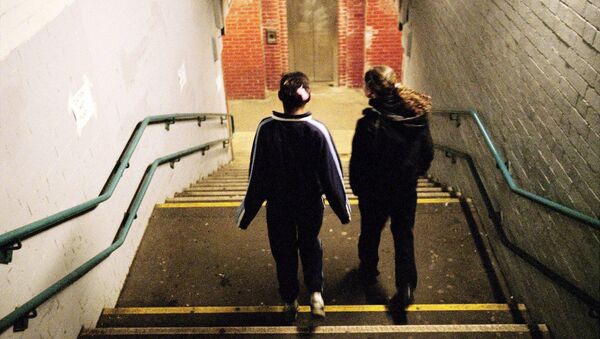Alastair Currie from Population Matters, shared his insight on the situation.
Sputnik: Firstly, can you tell me how significant these findings are and is it really that surprising?
Alastair Currie: These birth rates are following a trend that has been going on for quite some time, in fact for a very long time, and generally as countries become more affluent the birth rate declines.
What we have seen in the UK is fertility rates being pushed up slightly by immigration, because immigrants tend to be younger people who come to work, and therefore, they're more likely to have kids, which is the birth rate up a little bit but the overall trend has been continuing to be downward over quite a long time.
So it's no surprise, but it certainly is a good thing.
Sputnik: Is something that we should be particularly concerned about and how does it compare to other nations?
Alastair Currie: We are the lowest in Europe, but the trend is down really across Europe and across the developed world, the question is whether or not it's concerning.
When we talk about demographics, one of the issues that is constantly raised is an ageing population and I think we have to see this in a in a much broader context.
The broader context is environmental crisis and I think people are beginning to realize the depth of the environmental crisis we're in but it really is profound.
It’s in that context that we have to see the contribution of people, particularly in rich developed countries, such as the UK to global warming to biodiversity loss, to multiple problems that we have.
The impact that we have in our numbers and our level of consumption is so high that we have to be using all the ethical voluntary means that we can in order to address that situation - choosing to have your kids if one of those things.
People aren't using it and that's why the threats are going down. It's not because people are being forced to bring them down because they're making that choice.
Sputnik: How should these figures be handled by British Government taking into account that we are moving into an aging population?
Alastair Currie: I think one of the first things is we have to do is stop looking at anyone over the age of 65 has been some sort of burden on society, in fact many people who are retired actually contribute in a great way to the economy and to the quality of our life just to simple things like babysitting for their for their grandkids and that kind of thing.
People are can be much more productive than they were in the past because we are seeing longer life and longer, healthier life but there are challenges, of course, with people with older people who require more care.
I think we need to be clear, this is a question of our priorities as a society, if we want to invest in looking after the old people who need our help, we can choose to do that. It's just that it's just a question of what resources we devote to it.
The issue is that really the government sees it as it's got to be all about growth, it's got to be all about expansion of GDP, but really what people want is a is a better quality of life and we don't have to have more people making more growth.
If we choose to offer that greater support to older people that's something we can do whereas and again, I go back to this wider context, when we're in a situation in which we're facing environmental crisis we can't roll back species extinctions.
We can't roll back temperature changes if we get up to three degrees centigrade.
Our first job as a society and indeed our first job of our government is to is to protect people and prevent that. That's our greatest challenge. The challenge of dealing with making society is certainly warmer up to addressing.
Views and opinions expressed in this article are those of Alastair Currie and do not necessarily reflect those of Sputnik.

